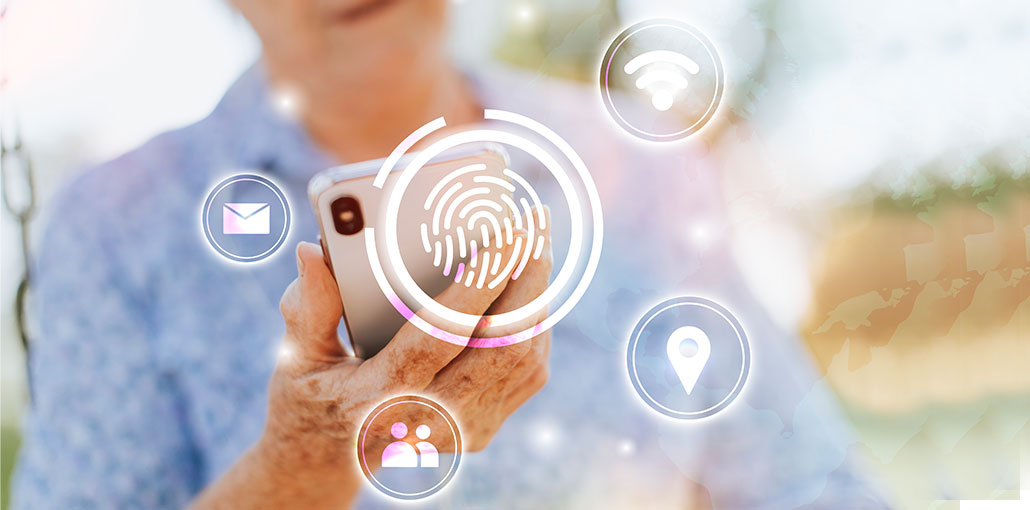For the last 20 years, the world has seen the rise of the digital age and its progressive advancement move along at a pace that many find it hard to keep up with.
From the birth of the Internet in 1983 to the development of robust AI tools in recent years, we’ve all come a long way in the digital age, but it’s only been for the last 20 years that our advancement has truly picked up the pace.
With the rapid pace of advancement on the digital frontier, we also have to be vigilant when it comes to the threats we face in such a vast landscape.
In many ways, cyberspace is looked upon as one of the final frontiers. Much like the frontier days of the west and the current efforts to explore interstellar space, cyberspace is a place where great unknowns and possibilities still exist, many of which have yet to be explored.
Regardless, the threat to our data is real. And there have been several attempts over the last decade at stealing data, holding data for ransom, and the like. As such, we’ve implemented a few means to safeguard our data. And anyone operating within the digital space should familiarize themselves with these security measures.
Also read: Best 10 Identity and Access Management (IAM) Solutions
Anti-Virus Software
Antivirus software has been around for quite a while. The underground hackers that popped up in the ’80s and ’90s gave rise to the need to safeguard our home computers on a massive scale. And it wasn’t too long ago that simply clicking on a false website link could compromise your entire identity.
During the early 2000s era, when file-sharing networks such as Napster, Limewire, and Kazaa became popularized, hackers across the globe found an easy route into everyone’s data simply by sharing corrupted files. And this spawned a new era of antivirus protection.
Antivirus software works by detecting and removing malicious codes, though some of the code written today is far too complex for basic antivirus software programs to detect or remove.
Regardless, having this software installed on your device offers you one level of defense against hacking attempts of your personal data.
VPN
A Virtual Private Network (VPN) is seen largely as an alternative to the growing data-mining business practices of most major companies.
Companies like Facebook have been under scrutiny recently in 2021 for business practices that collect, analyze and share browsing and buying habits while online. And this has also spilled over into search engine and smartphone manufacturing companies such as Apple.
Additionally, VPNs are seen as a way to prevent snooping by government agencies as well as by big tech.
A VPN offers users a private browsing experience. VPN networks create a secure portal between a user’s device and a secure VPN server. And this is especially useful when browsing using a public WiFi network where your data and personal information could be easily compromised.
In addition, a reliable VPN service provider can prevent a user’s Internet service provider (ISP) from tracking their browsing activity, and this is an attractive quality for those who would rather keep their private affairs–private.
Blockchain
It’s only been within the last decade or so that digital currency has made a big impact in the financial sector. In fact, if you were savvy enough to invest in Bitcoin ten years ago, you’d probably be retired by now, sitting on a beach somewhere, sipping Mai Tais and not even reading this article.
But with the rise in digital currencies across the board, technology was needed in order to keep this data secure. This is where blockchain technology comes into play.
A blockchain is essentially a shared database. Only where a blockchain differs is how it stores and allocates data. A blockchain stores data in blocks which are then linked together and time-stamped. Once a block is full, it’s closed and becomes a part of the chain in chronological order.
In the case of digital currency, blockchains are used as a transactional ledger of sorts. These blocks are decentralized, which means that all users have control, but once data is entered, it is then irreversible.
With crypto “whales” holding literally billions of digital coins today, having a decentralized blockchain is seen as the only secure way to handle transactions of this magnitude.
Also read: Who is Better For Security: VPNs vs. Firewalls vs. Antivirus
The Real Threat
The threat of cyberterrorism is very real in today’s world. In fact, during the COVID-19 pandemic, major fuel supply chains were disrupted by hackers attempting to hold data for ransom. And this is becoming a problem across the globe.
For example, many Americans have heard the rhetoric surrounding Russian hacking and interference in the 2016 and 2020 elections. And though much of these reports remain the stuff of political grandstanding, the fact is that hacking efforts of this type have been recorded by U.S. intelligence agencies.
Keeping our data safe is everyone’s responsibility. And considering that many people have tons of personal information stored on their smartphones alone, including personal identity and financial information, this makes digital security-critical for being able to function in a progressively technological society.
Using common sense when browsing sites and checking emails remains the best defense against becoming a victim of cybercrime. Basically, if a link looks suspicious, if you get an odd message from a “friend” that you haven’t spoken to in years asking for information, or if you notice strange transactions in your checking account, chances are you’re being targeted, and you should notify the authorities.










Leave a comment